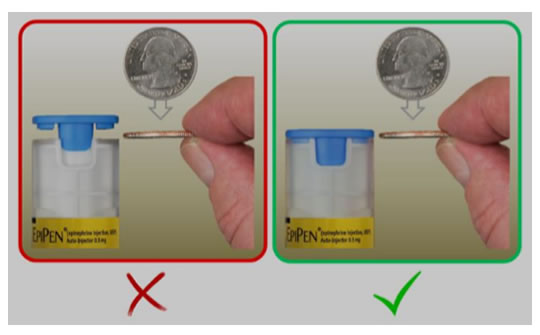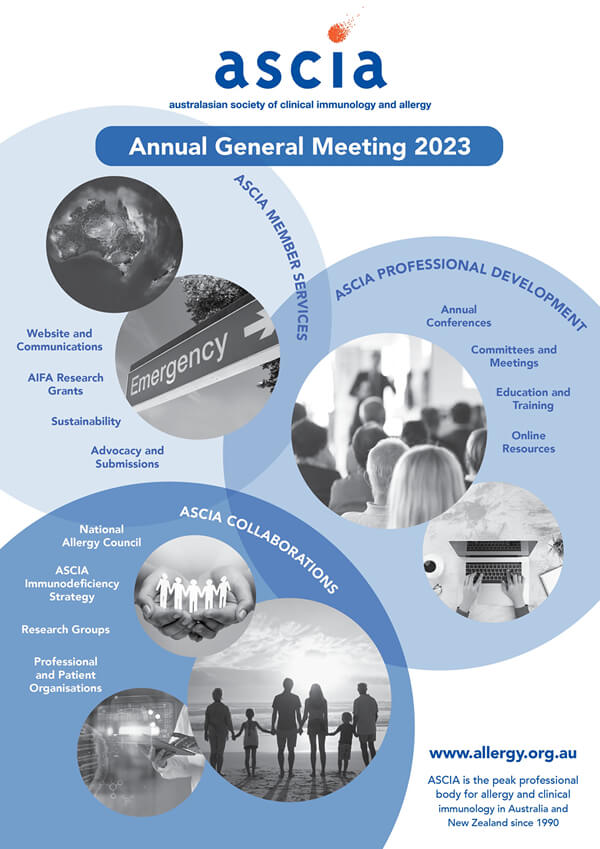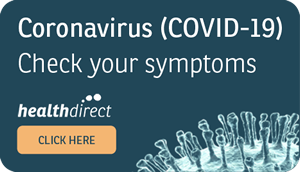This webpage includes links to:
Supply updates | PBS listings | FDA report about EpiPen® | Process to follow during shortages | Adrenaline Injector dose guide
Supply updates
January 2024
Adrenaline (Epinephrine) Injector Training Devices
ASCIA anaphylaxis e-training courses should always be completed in conjunction with practice using adrenaline (epinephrine) injector training devices (EpiPen® and Anapen®), which do not have a needle and do not contain adrenaline.
To order Anapen trainers email This email address is being protected from spambots. You need JavaScript enabled to view it.
To order EpiPen trainers email This email address is being protected from spambots. You need JavaScript enabled to view it.
The patient support organisation, Allergy & Anaphylaxis Australia (www.allergyfacts.org.au), supply adrenaline injector trainer devices as an alternative source to the supplier, particularly if the supplier is low on stock. This organisation charges a small fee for these devices. These funds help support the charity that gives information and support to many people on a daily basis at no charge. For an order form go to https://allergyfacts.org.au/shop/training-accessories
Some pharmacies also supply adrenaline trainer devices at retail price.
6th January 2023
Pharmac to fund EpiPen® for severe allergies from 1 February 2023
Pharmac has confirmed on 15 December 2022 that it will be fully funding the EpiPen® brand of adrenaline autoinjectors from 1 February 2023, which will benefit thousands of New Zealanders. To read more go to https://www.allergy.org.au/about-ascia/info-updates/pharmac-to-fund-epipen-for-severe-allergies-from-1-february-2023
1st September 2021
Anapen® is now available on the PBS and information is available on the ASCIA website:
Updated EpiPen® patient support information is available on the ASCIA website:
31st August 2021
There is a good supply of long dated EpiPen® and EpiPen® Jr in Australia currently and in the foreseeable future. Viatris has worked hard to secure good quantities of EpiPen® in wholesalers and pharmacies with stock dating into late 2022 and early 2023.
16th June 2021
With long-dated EpiPen® Junior autoinjectors now available in Australia, Viatris has seen an unprecedented demand for the product at pharmacy level in the last two months. Demand has been up to three-fold the normal levels, and as a result Viatris has taken the responsible position and action to temporarily limit supply of bulk orders into the market. This will help to ensure longevity of supply.
Viatris has been working hard to ensure supply of additional EpiPen® Junior autoinjectors, and these have been shipped to the various wholesalers and pharmacies nationally throughout Australia. We are continuing to transport additional quantities to the market and will continue to do so into the near future.
As with all medications, supply will vary by suburb and pharmacy. If a pharmacy is out of stock, they should contact the EpiPen® Hotline 1800 931 625 to place a back order..
9th June 2021
EpiPen Jr had a 3 day limited supply due to an unprecedented increase in demand over the past month. However, new long dated stock (exp July 2022) is being shipped to wholesalers from Thursday 3rd June. Stock should be available at pharmacies now, but depending on the state and pharmacy wholesaler, it may be a few more days.
Pharmacists are advised to place a backorder with their preferred wholesaler in line with their usual demand.
4th February 2021
There are NO shortages of EpiPen® or EpiPen® Jr adrenaline autoinjector devices in Australia or New Zealand. EpiPen® Jr expiry dates may be shorter than in previous years, due to COVID-19 related supply issues. Two new replacement devices can be prescribed on the PBS by a GP or specialist in Australia within 12 months if the devices are due to expire or have been used.
4th September 2020
The adrenaline shortage reported on the TGA website is for adrenaline ampoules, NOT adrenaline autoinjectors. https://apps.tga.gov.au/Prod/msi/Search/Details/adrenaline-epinephrine
9th March 2020
Mylan Australia has advised that despite there being sufficient supply of EpiPen®. unprecedented, disproportionate demand has meant that some pharmacies are experiencing supply delays and are seeing stock outages at some wholesalers,
To ensure equitable distribution of EpiPen® nationally, Mylan has commenced controlled supply to pharmacies. Pharmacies now need to call the Mylan EpiPen Customer Service hotline on 1800 931 625 to place an order for EpiPen®. Only orders placed by pharmacies via Mylan will be processed and stock will still be delivered to pharmacies via wholesalers.
25th February 2020
Mylan Australia has advised that there has been sufficient supply of EpiPen® Jr 150 microgram adrenaline autoinjectors since early February 2020 at wholesalers and at Mylan’s warehouse to meet current patient needs in Australia.
Orders from wholesalers and pharmacies are being filled as they are received. As a result, EpiPen® Jr has been removed from the Therapeutic Goods Administration (TGA) Medicines Shortage Information Initiative website. https://apps.tga.gov.au/prod/MSI/search#search-msis
There are currently no supply shortages of EpiPen® 300 microgram adrenaline autoinjectors in Australia or New Zealand.
Mylan Australia’s dedicated, toll-free EpiPen Customer Service hotline 1800 931 625 remains up and running for any enquiries.
To ensure that supply channels are aware of this news, Mylan has emailed the attached notice to pharmacists. The notice is also being distributed by the Pharmacy Guild of Australia and the Pharmaceutical Society of Australia.
 EpiPen supply update 24 Feb 2020
EpiPen supply update 24 Feb 2020
PBS Listings
PBS listings for EpiPen® or Anapen® adrenaline injectors in Australia allow a maximum quantity of two auto-injectors, and both of these require an authority approval. When accessing the PBS website http://www.pbs.gov.au/medicine/item/8698T it is important that prescribers are aware that they have to click on “Note” on the top left hand side of the webpage, to access the following information:
The auto-injector should be provided in the framework of a comprehensive anaphylaxis prevention program and an emergency action plan including training in recognition of the symptoms of anaphylaxis and the use of the auto-injector device.
Note - Authority approvals will be limited to a maximum quantity of 2 auto-injectors at any one time.
Note - No applications for repeats will be authorised.
For more information go to https://www.allergy.org.au/hp/anaphylaxis/adrenaline-autoinjector-prescription
FDA report about EpiPen®
27 March 2020
 EpiPen US HCP letter statement194.89 KB30/03/2020, 12:14
EpiPen US HCP letter statement194.89 KB30/03/2020, 12:14
Mylan has issued this letter in response to the recent announcement by the Food and Drug Administration (FDA) about safety issues for some EpiPen®, EpiPen® Jr, and generic products on the the FDA website This announcement relates to device malfunctions and user administration that may cause product safety issues with some EpiPen® and EpiPen® Jr, as well as their generic products.
On 24th March 2020 Pfizer and Mylan published a notification in the US about a very limited number of cases in which the administration of EpiPen® 0.3 mg and EpiPen Jr® 0.15 mg autoinjectors, and their authorised generic versions of these strengths, may potentially be delayed or prevented. This notification resulted from routine studies and evaluation of real-world data that Mylan and its manufacturing partner Meridian Medical Technologies, a Pfizer company, undertake about how healthcare professionals, patients and carers administer EpiPen®, which is a critical life-saving device.
The information in this notification serves as an important opportunity to provide precautionary handling instructions and remind people with severe allergy and their carers about the correct administration of EpiPen®, and recommendation to carry two EpiPen® or EpiPen® Jr autoinjectors or the authorised generic version at all times. Potential issues and user errors are listed below.
- Device failure from activation caused by sideways force to remove blue safety release
In Australia and New Zealand there have been no reports of problems with the removal of the blue safety release. The advice in Australia and New Zealand is to hold the device in one hand (fist around the device) and remove the blue safety release with the other hand. Removing the blue safety release using sideways forces may activate the EpiPen prematurely. To prevent this premature activation, patients and their carers should to follow the clear instructions on how to use EpiPen® on the ASCIA website. https://www.allergy.org.au/hp/anaphylaxis
- Device failure from inadvertent or spontaneous activation due to raised blue safety release
In a very limited number of cases, EpiPen® devices may have a blue safety release that is slightly raised. The function of the blue safety release is to ensure the device does not activate prior to its intended use. It should not be removed until the time of use. If the blue safety release is raised the device may activate prematurely, which could potentially delay or prevent emergency treatment when needed.
If the blue safety release is raised, the autoinjector should NOT be dispensed or used, since premature activation may occur. Internal testing has shown that the probability of a raised blue safety release at 4.6 mm (height of the raised safety pin in the image below) resulting in spontaneous activation rate is 4 units in 1 billion. If the blue safety release is raised, contact Mylan (In Australia: 1800 274 276; In New Zealand: 0800 579 811), to obtain a replacement device at no additional cost. Return the device to the tube and close the lid. Do not attempt to force the blue safety release back down.

- Difficulty removing the device from the carrier tube
EpiPen® marketed in Australia and New Zealand is labelled and packaged in Australia using a different packaging process, so this issue is not relevant in Australia or New Zealand.
- Certain identified use errors
The issues identified in the US are not relevant in Australia or New Zealand because administration guidelines in Australia and New Zealand do not recommend the swing and jab technique, that is used in the US.
Note: If you think you may be experiencing a side effect to a medicine or a problem with a medical device, seek advice from a health professional as soon as possible. Mylan and the TGA collect adverse event reports to monitor the safety of medicines and medical devices, but cannot provide you with healthcare or health advice. If you would like to report a side effect or a product complaint, please email or telephone Mylan at: This email address is being protected from spambots. You need JavaScript enabled to view it. or 1800 274 276 .
You may also report a side effect to a medicine directly to the TGA. For more information on how to report side effects to the TGA go to: https://www.tga.gov.au/reporting-problems
Process to follow during shortages
There are now two suppliers of adrenaline injectors:
- Viatris - supplier of EpiPen® and EpiPen®Jr in Australia and New Zealand.
- Allergy Concepts - supplier of Anapen®500, Anapen®300 and Anapen®150 in Australia.
Have two brands should prevent shortages and therefore ensure that people at risk of a potentially life-threatening allergic reaction (anaphylaxis) have access to the emergency treatment.
To ensure people at risk of anaphylaxis have access to the treatment they may need if there are future shortages of both brands:
- Only one injector per patient is usually dispensed and supply may be restricted to patients with an injector prescription for a new diagnosis, or because their injector has expired or has recently been used.
- Schools and children's education/care (CEC) centres should not request additional injectors to be brought to the school or CEC centre for each child at risk of anaphylaxis, and should limit the replacement of general use injectors.
Whilst the use of an expired adrenaline injector is not ideal, research suggests that recently expired devices retain potency. Therefore, if no other autoinjector is available, use of a recently expired injector to treat anaphylaxis is advised, as stated on the ASCIA website allergy.org.au/hp/anaphylaxis/adrenaline-autoinjector-storage-expiry-and-disposal
Adrenaline injector dose guide
In Australia and New Zealand, there are three doses of adrenaline injectors available:
- Anapen® 500 (500 micrograms) are usually prescribed for adults and children over 50 kg.
- EpiPen® (300 micrograms) or Anapen® 300 are usually prescribed for adults and children over 20 kg.
- EpiPen®Jr (150 micrograms) or Anapen® 150 are usually prescribed for children 7.5-20 kg. Children under 7.5kg are not usually prescribed an adrenaline autoinjector.
Content updated January 2024
 ASCIA AGM 2022 Minutes1.11 MB - Accepted by Dr Michael O'Sullivan, A/Prof Jane Peake
ASCIA AGM 2022 Minutes1.11 MB - Accepted by Dr Michael O'Sullivan, A/Prof Jane Peake
![]() ASCIA Annual General Meeting 2023738.68 KB
ASCIA Annual General Meeting 2023738.68 KB

